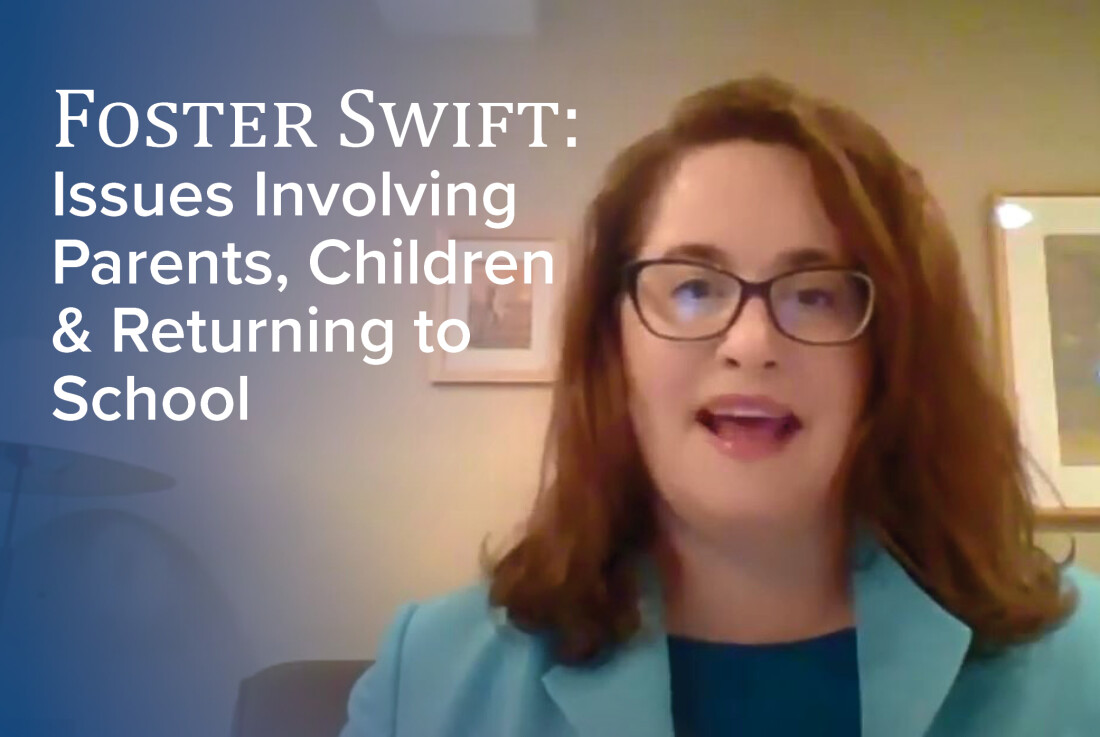Striving for Fairness – How do Courts Deal with a Couple's Ongoing Financial Obligations During Divorce Proceedings?
 During the divorce process, questions regarding finances will inevitably come up: How will our finances work while we’re getting divorced? Who is going to pay the mortgage, credit card, daycare, school tuition? Can I pay my attorney out of a joint account? Can I still take the kids on spring break? It’s only natural when thinking about a huge life change to worry about finances. This is true even for individuals earning significant incomes and high net-worth couples. This article provides a short explanation of two tools that courts use to assist couples to help manage their finances during divorce proceedings – status quo and attorney fee contribution orders.
During the divorce process, questions regarding finances will inevitably come up: How will our finances work while we’re getting divorced? Who is going to pay the mortgage, credit card, daycare, school tuition? Can I pay my attorney out of a joint account? Can I still take the kids on spring break? It’s only natural when thinking about a huge life change to worry about finances. This is true even for individuals earning significant incomes and high net-worth couples. This article provides a short explanation of two tools that courts use to assist couples to help manage their finances during divorce proceedings – status quo and attorney fee contribution orders.
At the outset, it is important to understand that courts are addressing two separate questions:
- How are monthly bills and other familial expenses going to be paid during the divorce?
- How is each spouse going to afford the costs associated with the divorce?
I bring up the latter question because it is the one new variable being introduced into a family’s budget during every divorce and not one that anyone plans for.
Before delving into specifics, it is worth noting divorce courts are courts of equity, meaning that courts are directed to ensure a fair outcome for each of the parties. This directive extends to a divorcing couple’s ongoing financial obligations and provides the underlying rationale for the use of status quo and attorney-fee contribution orders.
Status Quo Orders
The last thing anyone needs during a divorce is to worry about his or her spouse blowing the mortgage payment on a fancy solo vacation or buying a new wardrobe, sports car, or jewelry with the money set aside for next semester’s tuition payment. For that exact reason, courts have the authority to issue financial status quo orders. As the name implies, status quo orders obligate the divorcing couple to maintain their existing financial arrangements through the completion of the divorce proceeding. In practical terms, status quo orders force the parties to pay monthly bills, maintain health and life insurance coverage, pay state and federal taxes, and contribute toward individual and joint bank accounts however they did before throughout the marriage while the divorce case is pending.
Because status quo orders are designed to maintain the couple’s existing situation, they also generally permit spending to be maintained at existing levels. In other words, a couple that shops at Target can continue to shop there while a couple that shops at Gucci can do the same. Status quo orders can be requested at any time, by either party and provide a measure of financial certainty during a difficult and stressful time. Some judges grant them as a matter of course, while others require a party to provide a factual basis explaining why he or she believes a court order is necessary.
Attorney Fee Contribution
Attorney fee payments are more variable, but, as explained above, courts strive for fairness. Courts generally have the authority to order:
- Each party to pay their own costs,
- Costs to be paid out of the marital estate prior to dividing the marital assets,
- One party to pay the other party’s costs, and
- Contribution from one party to the other in a specific amount or for a specific purpose.
There is no one-size-fits-all, and cost allocation will vary from judge-to-judge and case-to-case. A few general rules apply though.
First, one side will pay the other for financial chicanery, lies, and misconduct. Courts can and will order one party to pay all or part of the other party’s fees and expenses where they were incurred for failure to comply with a court order that could have been complied with, such as a refusal to provide financial documents or answer deposition questions after being ordered to do so. Courts will also readily sanction a party in the form of attorney-fee contributions for engaging in inappropriate discovery practices. For example, any divorcing spouse who hides bank accounts or other assets may well be ordered to pay every dime that it cost the other spouse to find the hidden asset (and may forfeit the asset as well).
Second, neither spouse can be “litigated out” of the case. Michigan law provides that one party can obtain contribution toward attorney fees and costs where he or she is unable to afford the expense of litigation, including the cost of engaging in appropriate discovery, and the other party has the ability to pay. In plain language, one spouse cannot hire an army of lawyers and experts while leaving the other spouse to represent himself or herself. To use an example from my own experience, one spouse earns all or most of the couple’s income and is the divorcing couple’s designated money manager. The money manager may have sole online access to joint accounts or may maintain marital money in accounts solely in his or her name. While there’s nothing improper with this type of arrangement, it means as a practical matter that one spouse has control over all or most of a couple’s available cash. Attorney-fee contribution rules keep the money manager from withholding funds from the other spouse so he or she cannot hire a lawyer to represent his or her interests or engage a financial expert to value marital assets, such as real estate or a closely-held business. Any funds contributed under this rule may be “paid back” wholly or partially at settlement or may not be, depending upon the facts of a particular case.
Every family has a different dynamic when it comes to finances. Choosing a family law attorney who understands your situation and can help guide you through this challenging time is of the utmost importance. If you have questions about this article and would like to know more, contact a Foster Swift family law attorney.
Categories: Divorce, Post Judgement




 Share
Share


